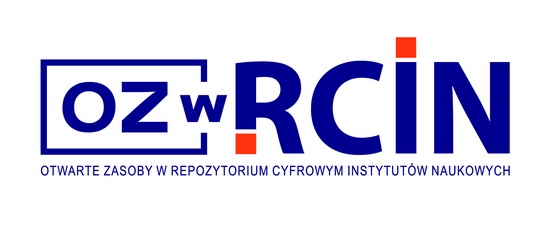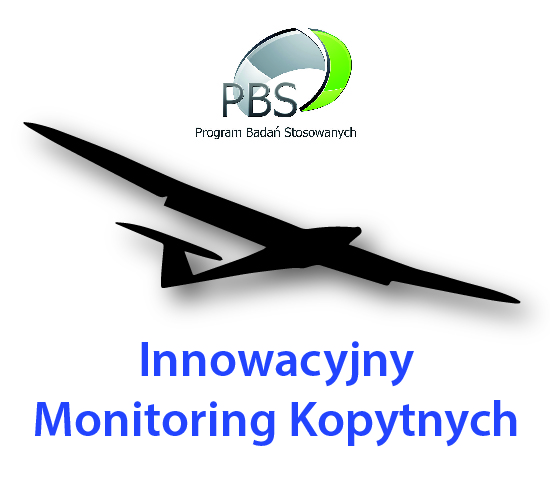Konkurs na stanowisko doktoranta
Tytuł projektu/Project title
Filogeneza i biogeografia biedronek z rodzaju Rhyzobius - badania na podstawie analizy danych molekularnych, morfologicznych oraz kopalnych.
Phylogeny and biogeography of the ladybird beetle genus Rhyzobius - an integrative approach based on molecular, morphological and fossil data analysis.
PhD position (1 position) in the Museum and Institute of Zoology, Polish Academy of Sciences (Warsaw, Poland)
We are looking for a highly motivated PhD student to participate in the project: “Phylogeny and biogeography of the ladybird beetle genus Rhyzobius - an integrative approach based on molecular, morphological and fossil data analysis”. The project will be carried out at the Museum and Institute of Zoology, Polish Academy of Sciences in Warsaw (Poland) under the supervision of dr hab. Karol Szawaryn. The project is financed by the Polish National Science Centre, which ensures a PhD student with a monthly tax-free research stipend of 5000 PLN for three years. Project can be prolonged for the fourth year with a stipend of 3654 PLN gross funded by a Doctoral School fellowship.
Project description: Ladybird beetles (Coccinellidae) are common and well-known insects, however, their classification is very challenging. Despite of many recent efforts based on both molecular and morphological dataset, only a moderate improvement has been made. Only the higher classification was proposed but phylogeny of numerous tribes is still unresolved. Only integrative approaches utilizing molecular, morphological and fossil data can help to propose a sound hypothesis about the evolution of ladybird beetles. One of the taxonomically most complex groups, and without any phylogenetic hypothesis is the tribe Coccidulini, which in some studies are recovered as basal part of the Coccinellidae evolutionary tree, in others constitute a crown group. Coccidulini are distributed worldwide but their greatest diversity is in southern hemisphere including Neotropics, southern Africa and Australia. The largest and most widely distributed Coccidulini genus is Rhyzobius, which was taxonomically revised in 2010, however, the revision questioned its monophyly. The proposed project aims to reconstruct molecular phylogeny of the genus Rhyzobius with broad representation of other taxa of Coccidulini from the whole distribution range based on 5-8 molecular markers. The second part will be construction of the morphological matrix. The advantage of studying evolution of Rhyzobius is that we also have a fossil record which is preserved in Eocene ambers from Oise in France and Baltic amber. So the third source of the information will be investigation of fossil data. The final results will be obtained based on integration of all these sources of information to propose a sound hypothesis about phylogeny which will enable the study evolutionary trends and biogeography of the genus Rhyzobius and in some extend the tribe Coccidulini.
Requirements: Successful candidates should have a Master’s degree in Biology. The candidate should have an experience in the molecular lab work, basic experience in bioinformatics including analysis of molecular data for phylogenetic purposes, and an experience with classic insect morphological analyses. Experience in working with beetles and interest in working with fossil specimens will be an advantage. The candidate should have very good communication skills in English, perseverance, commitment, and the ability to work in a team.
Work description: Successful candidate will be performing laboratory work (i.e. DNA extractions, PCRs), process and prepare raw sequences for the phylogenetic analyses, performance of phylogenetic analyses in various programs (e.g. IQ-Tree, MrBayes), perform morphological revisions and descriptions at generic/species level, analyze fossil specimens from various amber sources and integrate them with morphological matrix of modern taxa, and use them for calibration of the molecular trees. The PhD student will be guided by members of our team (Wioletta Tomaszewska, Adam Ślipiński) and encouraged to develop her/his own ideas.
Application: The candidates are asked to contact by email prof. Karol Szawaryn (Ten adres pocztowy jest chroniony przed spamowaniem. Aby go zobaczyć, konieczne jest włączenie w przeglądarce obsługi JavaScript.) attaching the following documents (with the email subject “Application for a PhD position”):
1) a cover letter describing the motivation and research experience (max. 1 page);
2) CV including the list of publications, with the following statement provided at the end:
“I give my consent to the processing of personal data provided in my application documents by the Museum and Institute of Zoology PAS for the purpose of the recruitment process, pursuant to the Personal Data Protection Act of 10 May 2018 (Journal of Laws 2018, item 1000) and in agreement with Regulation (EU) 2016/679 of the European Parliament and of the Council of 27 April 2016 on the protection of natural persons with regard to the processing of personal data and on the free movement of such data, and repealing Directive 95/46/EC (General Data Protection Regulation; L 119 from 04.05.2016)”
3) copy of the MSc certificate;
4) opinion or an email contact of at least one supervisor/researcher holding a PhD degree;
5) filled form to the BioPlanet Doctoral school, which can be downloaded here: https://szkoladoktorska-bioplanet.pl/en/downloadable-forms/
The deadline for submitting the application is 31.01.2023.
The candidates will be assessed based on the information in the submitted documents. Recruitment is carried out in accordance with the Regulations on awarding funding for research tasks funded by the National Science Centre as regards research projects, set out in the Annex to NCN Council Resolution No 90/2019 of 12 September 2019.
1) In the first step documents sent by the Applicants will be assessed by the panel.
2) Candidates that passed the first assessment will be contacted by e-mail to define a date for an online interview.
3) Successful candidate will conduct her/his studies in the BioPlanet Doctoral School https://szkoladoktorska-bioplanet.pl/en/home/.
Results will be announced 16.02.2023.
Ideally position will start in late February/March 2023 (negotiable).
DYREKTOR MUZEUM I INSTYTUTU ZOOLOGII PAN W WARSZAWIE OGŁASZA KONKURS NA STANOWISKO NAUKOWE - ASYSTENTA
Słowa kluczowe: ekologia ptaków, monitoring, badania populacji, modelowanie
W związku z rozwojem Pracowni Badań Ornitologicznych Muzeum i Instytutu Zoologii Polskiej Akademii Nauk poszukujemy pracownika naukowego na stanowisko Asystenta
Opis zadań:
Praca z danymi o występowaniu i liczebności ptaków zbieranymi w ramach Monitoringu Ptaków Polski, w szczególności z danymi z Monitoringu Pospolitych Ptaków Lęgowych. Praca polega na modelowaniu zmian liczebności i rozpowszechnienia oraz wizualizacji danych w środowisku R, a następnie na tworzeniu raportów i publikacji naukowych. Pracownik będzie również współpracował z naukowcami z innych krajów europejskich w ramach sieci Pan European Common Bird Monitoring Scheme (PECBMS), przygotowywał dane do europejskich wskaźników liczebności ptaków i uczestniczył w przygotowaniach publikacji naukowych we współpracy z PECBMS.
Wymagania stawiane kandydatowi:
- Wykształcenie wyższe, dyplom w dziedzinie nauk biologicznych;
- Predyspozycje do pracy naukowej, wiedza i doświadczenie w terenowych badaniach ekologicznych;
- Udokumentowany dorobek naukowy, w tym publikacje w czasopismach w listy filadelfijskiej ;
- Udokumentowane sukcesy w pozyskiwaniu finansowania projektów ze źródeł zewnętrznych i doświadczenie w kierowaniu projektami badawczymi;
- Dobra znajomość metod statystycznych, w szczególności aplikowanych w
środowisku R;
- Dobra znajomość języka angielskiego w mowie i piśmie;
- Umiejętność prowadzenia dokumentacji wyników badań, opracowywania i prezentacji wyników w środowiskach naukowych,
- Dobra organizacja pracy, umiejętność pracy w zespole, zaangażowanie, rzetelność i samodzielność w wykonywaniu obowiązków.
Oferujemy:
· stabilne zatrudnienie w ramach umowy o pracę,
· możliwość realizacji projektów badawczych w oparciu o współpracę z ośrodkami w kraju i za granicą,
· możliwość rozwoju zawodowego oraz podnoszenia kwalifikacji,
· ciekawą pracę w środowisku opartym na współpracy i wzajemnym szacunku,
Wymagane dokumenty:
Kandydaci zobowiązani są do dostarczenia następujących dokumentów w języku polskim:
- Podanie o zatrudnienie w MiIZ PAN;
- CV z dopiskiem: „Wyrażam zgodę na przetwarzanie moich danych osobowych zawartych w CV przez Muzeum I Instytut Zoologii Polskiej Akademii Nauk z siedzibą w Warszawie przy ul. Wilczej 64 dla potrzeb rekrutacji (administrator danych) zgodnie z
Rozporządzeniem Parlamentu Europejskiego i Rady (UE) 2016/679 z dnia 27 kwietnia
2016 r. w sprawie ochrony osób fizycznych w związku z przetwarzaniem danych
osobowych i w sprawie swobodnego przepływu takich danych oraz uchylenia dyrektywy
95/46/WE (RODO)”.
- Wykaz publikacji i opis dorobku naukowego;
- Odpis dyplomu ukończenia studiów II stopnia;
- Nazwiska i adresy email min. dwóch osób mogących udzielić referencji kandydatowi;
- Inne dokumenty uznane przez kandydata za ważne;
Dodatkowe informacje:
Dokumenty z dopiskiem „Konkurs na stanowisko asystenta w MiIZ PAN” należy przysyłać do dnia 27 grudnia 2022 r. do godz. 15:00 e-mailem na adres: Ten adres pocztowy jest chroniony przed spamowaniem. Aby go zobaczyć, konieczne jest włączenie w przeglądarce obsługi JavaScript.,
ROZSTRZYGNIĘCIE KONKURSU – nastąpi do dnia 28 grudnia 2022 r.
Poszukujemy pracowników naukowych do nowo tworzonej Pracowni w Muzeum i Instytucie Zoologii PAN w Warszawie w skład której wchodzić będzie kilka grup badawczych
DYREKTOR MUZEUM I INSTYTUTU ZOOLOGII PAN W WARSZAWIE
OGŁASZA
KONKURS NA STANOWISKA NAUKOWE
Poszukujemy pracowników naukowych do nowo tworzonej Pracowni w Muzeum i Instytucie Zoologii PAN w Warszawie w skład której wchodzić będzie kilka grup badawczych
Wymagania stawiane kandydatom na stanowiska naukowe
Profesora MiIZ, Adiunkta
Słowa kluczowe: parazytologia, biologia molekularna, epidemiologia, proteomika, badania
serologiczne
-
Stopień doktora habilitowanego nauk biologicznych lub pokrewnych, doktora nauk biologicznych lub pokrewnych ,
-
Predyspozycje do pracy naukowej, wiedza i doświadczenie w prowadzeniu badań molekularnych, serologicznych oraz hodowli in vitro,
-
Wiedza w temacie pasożytów wewnętrznych zwierząt,
-
Predyspozycje do pracy ze zwierzętami laboratoryjnymi,
-
Znajomość podstawowych technik parazytologicznych oraz proteomicznych, a także doświadczenie w pracy z materiałem pochodzącym od zwierząt wolnożyjących będzie dodatkowym atutem,
-
Udokumentowane sukcesy w pozyskiwaniu finansowania projektów badawczych ze źródeł zewnętrznych/ doświadczenie w przygotowywaniu wniosków o realizację projektów badawczych/ doświadczenie w realizowaniu projektów badawczych,
-
Udokumentowany dorobek naukowy w tym publikacje w czasopismach z listy JCR,
-
Umiejętność prezentacji własnych dokonań naukowych oraz ugruntowana współpraca krajowa i międzynarodowa.
-
Umiejętność pracy w zespole naukowym, zaangażowanie, rzetelność i samodzielność w wykonywaniu obowiązków
-
Doskonała znajomość języka angielskiego w mowie i w piśmie.
Na stanowisko Asystenta
Słowa kluczowe: parazytologia, biologia molekularna, proteomika, badania
serologiczne
-
Wykształcenie wyższe, dyplom w dziedzinie nauk biologicznych lub pokrewnych,
-
Doświadczenie w pracy laboratoryjnej: techniki biologii molekularnej, techniki proteomiczne (bioinformatyczna analiza danych proteomicznych), testy serologiczne, prowadzenie hodowli komórkowych,
-
Wiedza teoretyczna i doświadczenie w pracy z pasożytami wewnętrznymi zwierząt
-
Predyspozycja do pracy ze zwierzętami laboratoryjnymi
-
Udokumentowany dorobek naukowy, w tym publikacje w czasopismach z listy filadelfijskiej,
-
Umiejętność prowadzenia dokumentacji wyników badań, opracowywania i prezentacji wyników w środowiskach naukowych,
-
Znajomość baz NCBI i obsługa pakietu MS Office,
-
Dobra organizacja pracy, umiejętność pracy w zespole, zaangażowanie, rzetelność i samodzielność w wykonywaniu obowiązków,
-
Biegła znajomość języka angielskiego w mowie i w piśmie.
Wymagane dokumenty:
-
Kwestionariusz osobowy.
-
Podanie o zatrudnienie w MiIZ PAN.
-
CV. Z dopiskiem:
„Podstawa prawna przetwarzania: art. 221 ustawy z dnia 26 czerwca 1974 r. Kodeks pracy (Dz. U. z 2022 r. poz. 1510 ze zm.), art. 87 ustawy z dnia 20 kwietnia 2004 r. o promocji zatrudnienia i instytucjach rynku pracy (Dz. U. z 2022 r. poz. 690 ze zm.), art. 6 ust. 1 lit. b, art. 13 ust. 1 i 2 rozporządzenia Parlamentu Europejskiego i Rady (UE) 2016/679 z dnia 27 kwietnia 2016 r. w sprawie ochrony osób fizycznych w związku z przetwarzaniem danych osobowych i w sprawie swobodnego przepływu takich danych oraz uchylenia dyrektywy 95/46/WE (ogólne rozporządzenie o ochronie danych) (Dz. Urz. UE L 119/1 z 4.5.2016)”.
-
Wykaz publikacji w czasopismach z listy JCR z ostatnich pięciu lat (i ewentualnie innych, uznanych przez kandydata za ważne).
-
Kopie dyplomów nadania stopni naukowych doktora, doktora habilitowanego, dyplom w dziedzinie nauk biologicznych lub pokrewnych,
-
Inne dokumenty uznane przez kandydata za ważne.
Dokumenty – skany dokumentów z dopiskiem „Konkurs na stanowisko naukowe MiIZ PAN” należy przesłać do dnia 19 grudnia 2022 r. do godz. 15:00 e-mailem na adres: Ten adres pocztowy jest chroniony przed spamowaniem. Aby go zobaczyć, konieczne jest włączenie w przeglądarce obsługi JavaScript.
ROZSTRZYGNIĘCIE KONKURSU – nastąpi do dnia 22 grudnia 2022 r.
DYREKTOR MUZEUM I INSTYTUTU ZOOLOGII PAN W WARSZAWIE OGŁASZA KONKURS NA STANOWISKA NAUKOWE
DYREKTOR MUZEUM I INSTYTUTU ZOOLOGII PAN W WARSZAWIE
OGŁASZA
KONKURS NA STANOWISKA NAUKOWE
Poszukujemy pracowników naukowych do nowo tworzonej Pracowni w Muzeum i Instytucie Zoologii PAN w Warszawie w skład której wchodzić będzie kilka grup badawczych
Zakres tematyczny grupy badawczej: Wzajemne relacje pomiędzy owadami a grzybami entomopatogennymi ze szczególnym uwzględnieniem mechanizmów infekowania owadów przez grzyby oraz reakcji obronnych owadów.
Słowa kluczowe: grzyby entomopatogenne, owady, hemocyty, kutikula, odporność wrodzona
Wymagania stawiane kandydatom:
Na stanowisko Profesora
-
Tytuł profesora nauk biologicznych lub pokrewnych.
-
Predyspozycje do pracy naukowej, wiedza i doświadczenie w kierowaniu zespołem naukowych.
-
Udokumentowany, znaczący dorobek naukowy w postaci opublikowania w ciągu ostatnich 5 lat, minimum 15 publikacji w czasopismach z listy JCR, o punktacji MEiN minimum 70 pkt. każda
-
Udokumentowane sukcesy w pozyskiwaniu finansowania projektów badawczych ze źródeł zewnętrznych i doświadczenie w kierowaniu projektami badawczymi.
-
Znajomość technik badawczych: cytometria przepływowa, mikroskopia fluorescencyjna, chromatografia gazowa sprzężona ze spektrometrią masową (GC-MS), chromatografia cieczowa sprzężona ze spektrometrią masową (LC-MS), pomiary impedancji, histologia, wykonywanie posiewów mikroorganizmów i ich identyfikacja za pomocą systemu Vitek 2, badanie cytotoksyczności, elektroforeza 1 i 2D, Western blot, PCR.
-
Ugruntowana współpraca krajowa i międzynarodowa.
-
Doskonała znajomość języka angielskiego w mowie i w piśmie.
Na stanowisko Adiunkta (2 stanowiska)
-
Stopień doktora, doktora habilitowanego biologicznych lub pokrewnych.
-
Udokumentowany dorobek naukowy, w tym publikacje w czasopismach z listy JCR o punktacji MEiN minimum 70 pkt. oraz publikacje, w których występował jako autor korespondencyjny.
-
Doświadczenie w kierowaniu projektem badawczym finansowanym przez NCN.
-
Udział w projektach finansowanych ze źródeł zewnętrznych.
-
Doświadczenie w prowadzeniu hodowli in vitro grzybów entomopatogennych oraz owadzich komórek immunokompetentnych.
-
Praktyczna znajomość technik badawczych: cytometria przepływowa, mikroskopia fluorescencyjna, chromatografia gazowa sprzężona ze spektrometrią masową (GC-MS), chromatografia cieczowa sprzężona ze spektrometrią masową (LC-MS), pomiary impedancji, histologia, wykonywanie posiewów mikroorganizmów i ich identyfikacja za pomocą systemu Vitek 2, badanie cytotoksyczności, elektroforeza 1 i 2D, Western blot, PCR.
-
Znajomość języka angielskiego w mowie i w piśmie.
Wymagane dokumenty:
-
Kwestionariusz osobowy.
-
Podanie o zatrudnienie w MiIZ PAN.
-
CV. Z dopiskiem:
„Podstawa prawna przetwarzania: art. 221 ustawy z dnia 26 czerwca 1974 r. Kodeks pracy (Dz. U. z 2022 r. poz. 1510 ze zm.), art. 87 ustawy z dnia 20 kwietnia 2004 r. o promocji zatrudnienia i instytucjach
rynku pracy (Dz. U. z 2022 r. poz. 690 ze zm.), art. 6 ust. 1 lit. b, art. 13 ust. 1 i 2 rozporządzenia Parlamentu Europejskiego i Rady (UE) 2016/679 z dnia 27 kwietnia 2016 r. w sprawie ochrony osób fizycznych w związku z przetwarzaniem danych osobowych i w sprawie swobodnego przepływu takich danych oraz uchylenia dyrektywy 95/46/WE (ogólne rozporządzenie o ochronie danych) (Dz. Urz. UE L 119/1 z 4.5.2016)”.
-
Wykaz publikacji w czasopismach z listy JCR z ostatnich pięciu lat (i ewentualnie innych, uznanych przez kandydata za ważne).
-
Kopie dyplomów nadania stopni naukowych doktora, doktora habilitowanego i tytułu Profesora.
-
Inne dokumenty uznane przez kandydata za ważne.
Dokumenty – skany dokumentów z dopiskiem „Konkurs na stanowisko naukowe MiIZ PAN” należy przesłać do dnia 19 grudnia 2022 r. do godz. 15:00 e-mailem na adres: Ten adres pocztowy jest chroniony przed spamowaniem. Aby go zobaczyć, konieczne jest włączenie w przeglądarce obsługi JavaScript.
ROZSTRZYGNIĘCIE KONKURSU – nastąpi do dnia 22 grudnia 2022 r.









